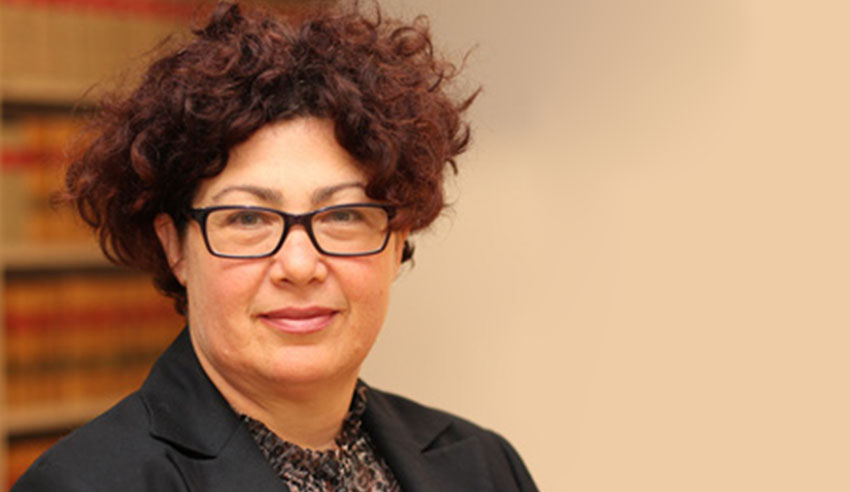The culture of silence is broken, and female lawyers who stand up for their rights and those of others will be viewed favourably in an evolving legal environment, argues a prominent NSW barrister.

Speaking recently on The Lawyers Weekly Show about the need for bystander policies to combat misconduct such as bullying and sexual harassment, Women Lawyers Association of NSW president and barrister Larissa Andelman (pictured) said having such policies in place says a lot about law firms and how they see themselves and live the values they espouse.
“I think law firms don’t condone that kind of practice, and they want people to notify the senior manager or the practising partner if that kind of conduct goes on,” Ms Andelman said.
“So, I would certainly not be encouraging young women to put up with it, or just leave and go somewhere else and allow that person to continue to fester and cause a problem for someone else. It’s really important for all of us to be speaking out.”
The attitude in today’s legal landscape is different, Ms Andelman mused, and the mindset of young female lawyers emerging has evolved with it.
“I think the culture is substantially different in the sense that, in the past, we had this idea that if you experience sexual harassment or bullying, you just put up with it, because otherwise you won’t be able to get a job somewhere else, or you’ll be adversely impacted, or you’ll be considered a troublemaker,” she reflected.
“That kind of culture of silence I think is broken now, and I think young women expect to be treated fairly and respectfully. And I don’t think they’re as likely to put up with it as women from my generation did.”
As a result of shifting attitudes, it becomes even more important for senior professionals within law firms to recognise that they have “some fiduciary obligation” to ensure not only that bystander provisions are enacted but that they are enforced, she said.
“I think this is where the cultural issue does come into play, because, for example, if you see a big spill on the floor and you think, ‘Oh, that’s unsafe, I’d better tell someone’. Even though you could step around it, you can walk around it, you can deal with it yourself, you’re not going to just allow that to remain, because you’re aware that that might have a detrimental impact on others,” she explained.
“And I think we need to look at harassment and bullying and intimidation in the same way, because it doesn’t only affect that individual person, but it impacts on the culture throughout the organisation. And so there is a duty to provide a safe workplace under our occupational health and safety laws.”
To listen to Jerome’s full conversation with Larissa Andelman, click below:

Jerome Doraisamy is the managing editor of professional services (including Lawyers Weekly, HR Leader, Accountants Daily, and Accounting Times). He is also the author of The Wellness Doctrines book series, an admitted solicitor in New South Wales, and a board director of the Minds Count Foundation.
You can email Jerome at: